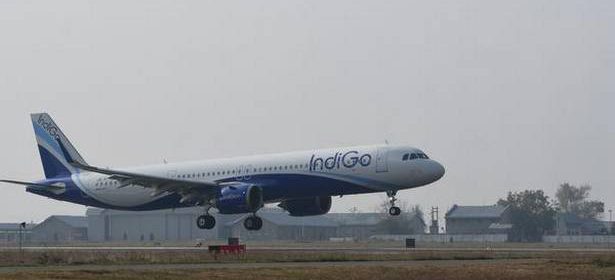Third wave of COVID-19 has airlines industry looking at ₹20,000 crore net loss

Domestic air traffic has already plummeted 25% in the first week of January
Hit by the third wave of the COVID-19 pandemic and soaring fuel prices, airlines are flying towards record losses with a likely loss of a whopping ₹20,000 crore for the full fiscal year, warns a report.
The airlines are flying towards their steepest-ever net loss of over ₹20,000 crore this fiscal, which will be 44% more than ₹13,853 crore they bled last fiscal, Crisil said in a report.
This will push back the industry’s recovery beyond fiscal 2023, the report based on three large listed airlines— Indigo, Spicejet, and Air India— which together command 75% of the domestic traffic, warned.
Air traffic had seen a swift recovery after the second wave and reached 86% of the pre-pandemic level in December 2021 compared over December 2019, while regular international flights were expected to start after January 2022.
However, the third wave has already caused domestic air traffic to plummet 25% in the first week of January. A similar trend was observed during the second wave in April-May 2021 when air traffic declined 25% and 66%, respectively, on a sequential basis, the report noted.
According to Nitesh Jain, a director at the agency, the three large listed airlines have already reported a net loss of ₹11,323 crore in the first half of the current fiscal. The sharp jump in domestic air traffic would have cushioned the losses in the third quarter, but net loss will increase significantly in the fourth quarter as the third wave has brought back travel restrictions and flight cancellations. As a result, airlines are expected to report the steepest net loss this fiscal.
Passenger load factor, a key operating metric, has improved to 80% in December 2021 from 50% in May 2021. Although seat utilization level has improved, it was still significantly lower than 88-90% pre-pandemic times leading to recurring losses and the continued suspension of scheduled international flights is only further hurting the sector as international routes are generally more profitable.
Besides the decline in traffic, high fuel price — which account for a third of the operating cost— is accentuating pressure on profitability.
Aviation turbine fuel prices had hit an all-time high of ₹83 a litre in November 2021, rising from an average price of ₹44 in fiscal 2021 and ₹63 in April-June 2021. While prices declined 6-8% in December 2021 because of reduction in value-added tax by various states, they remain still high after oil companies on Sunday increased ATF prices by 4.2% to ₹79.3 a litre in the national capital.
Rakshit Kachhal, an associate director at the agency, said persistent operating losses has led to a 35% increase in debt, excluding lease liabilities, to above ₹54,000 crore for the industry from March 2020 to September 2021 and the continuing net losses will keep balance sheets stretched leading to a negative outlook on the industry.
While the raging third wave will badly hit air traffic over the next few weeks, the report expects a swift recovery from March. During this time airlines are likely to continue to conserve cash, including deferring maintenance as well as major capital expenditure, while renegotiating aircraft leases and keeping a leash on other fixed cost.
Source: Read Full Article
